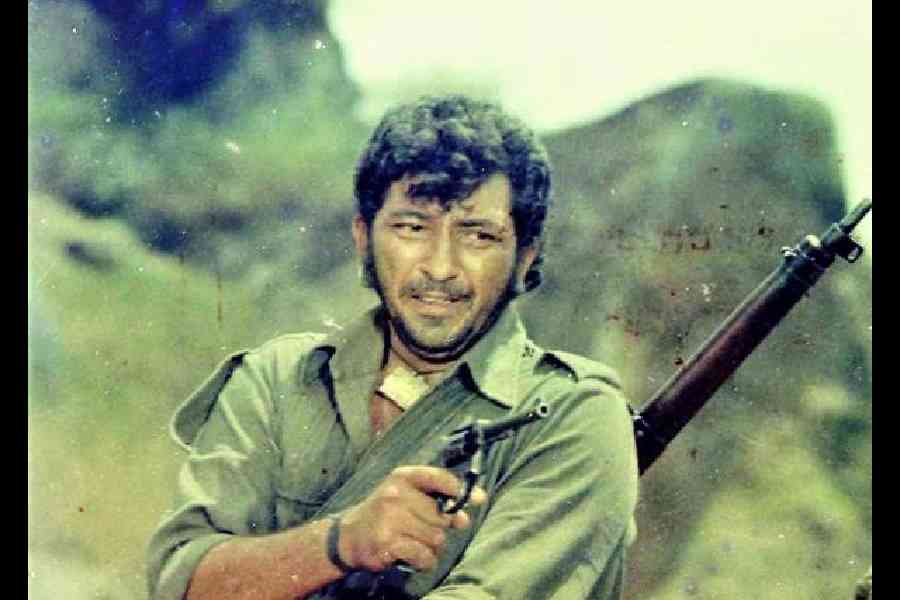Technological leaps are making celebrities and their legal teams go way beyond old-fashioned defamation suits. Artificial intelligence (AI) has got them in a huddle to protect themselves against a new worry. They’re anxious that a whole film or endorsement campaign could be made using their AI-created lookalikes and soundalikes over which they’d have no control. The latest is Jackie Shroff.
“I saw that Anil (Kapoor) has protected his AI, his voice and his image. Bachchansaab has done it. So I thought I should do it too. I think every actor should do it. Otherwise, someone can use your AI voice and image and you’d have no rights over it,” explained Jackie, shrugging that it was no big deal.
On the face of it, it sounds fair. Public figures like PM Modi, Sachin Tendulkar, AB Senior, Shatrughan Sinha and Jackie do have distinct voices. In Total Dhamaal, only Jackie’s voice was used for GPS instructions, the audience connected with “Bhidu”.
But to what extent can a celebrity protect his brand? One hears, certain stars haven’t been happy watching comic artistes like Krushna Abhishek do full-scale acts impersonating them on Bigg Boss and Kapil Sharma’s show. Krushna has performed an entire “kutte kameene” episode in front of an amused Dharmendra.
Can celebrities legally stop such comic impersonations?
From time immemorial, Johnny Lever, daughter Jamie Lever, late comedian Raju Srivastava and other stand-up artistes have made a living out of aping celebrities. Raj Kapoor, Ashok Kumar, “Jaani” Raaj Kumar and Sanjeev Kumar’s “Thakur” have been staple stand-up fodder and generations of stars have considered it a sign of success if comedians mimicked them.
Few would know that Naeem Sayyed died last year, but many would know Junior Mehmood did. Known as Junior Mehmood all his life, Naeem did a perfect imitation of Mehmood’s Hum kale hain toh kya hua since he was a kid. Meh- mood himself endorsed him, flattered that someone was patterning his whole career on his brand. Sudesh Bhosle made a career as Bachchan’s “duplicate voice”. Recently, an SRK double was used for a Lok Sabha campaign.
Dev Anand, Amitabh Bachchan and others took it as a compliment when a “naqli” Dev Anand, a “naqli” Amitabh Bachchan and other “naqlis” got media attention. The “naqlis” even got work in films and recognition at public events.
Will those wanting to protect their voice and image want all the “naqlis” to disappear or have them behind bars?
“In memory of Lata Mangeshkar” or “A tribute to Rafi” are also commercial shows of iconic voices. Will their families be able to legally stop lesser-known singers from exploiting their names?
Can Jackie or Anil Kapoor or Shatrughan Sinha patent “Bhidu”, “Jhakaas” or “Khamosh”, which are attached to their professional persona? Can Amjad Khan’s family seek compensation from anybody who does a Gabbar Singh impersonation or commercialises “Kitne aadmi thhe”? Or is it the writer or producer who can claim these dialogues as his property?
Moving forward technologically, filmmakers make lavish use of “face replacement”. When an actor is unavailable (even because of unexpected death), Hindi filmmakers have shot with a double and used “face replacement” to morph the actor’s face on to the double. Many recent films have quietly used this technique, the audience is not even aware of it. Isn’t this some form of AI?
It’s a grey, legal area. Maybe, “misuse” of an image or voice could be res-
tricted to not damaging the reputation of a celebrity. But even that interpretation can be wobbly. After Sridevi’s death, when Boney sent legal notices to those doing shows and take-offs on her, the performers hid behind the words “It’s a tribute to Sridevi Ma’am.”
To this day, any notice sent by Sri’s family remains a protest on paper.










